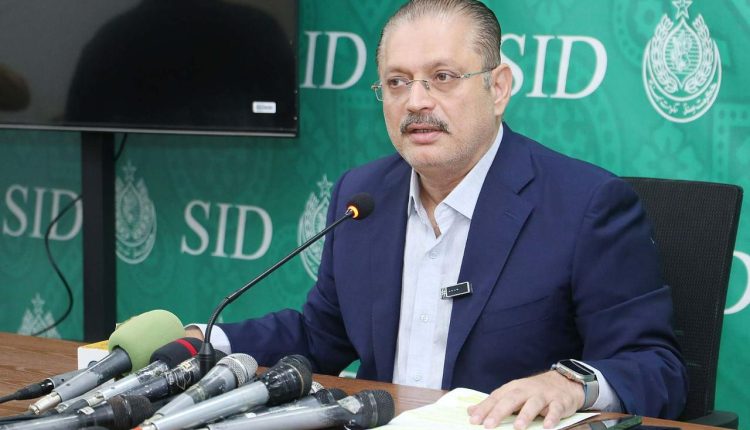Sharjeel Inam Memon
Minister for Information and Transport,
Government of Sindh
October 18, 2007, stands as a historic metaphor for a peaceful people’s democratic revolution that was halted by terrorism. Had the great tragedy that occurred that day at Karsaz on Shahra-e-Faisal in Karachi not taken place, the situation in Pakistan, and indeed across the region, especially in the Islamic world—might have been very different today. Shaheed Mohtarma Benazir Bhutto herself described this tragedy as “the result of the internal conflict within the Islamic world, the crises it was facing, and the attempt to hinder the growth of democracy there.”
On that day, a scene unfolded that is rarely witnessed in history. After eight years of exile, an ocean of people filled the streets of Karachi to welcome Shaheed Mohtarma Benazir Bhutto. Karachi, one of Pakistan’s largest and most expansive cities, seemed smaller that day. When Shaheed Bibi arrived at Karachi Airport, hundreds of thousands had already gathered, while countless others lined the surrounding highways. The welcome convoys struggled to find a way into the city. Even media drone cameras could not capture the full view of the immense crowd. Traffic was jammed for miles on every road leading into Karachi, and there was not a single empty spot from the airport to Jinnah Ground, opposite the Quaid-e-Azam’s mausoleum, where the rally was to be held.
It was a scene that changed the course of history and shaped the destiny of nations. The forces hostile to democracy and the people had never imagined such a moment could occur. Shaheed Mohtarma Benazir Bhutto, riding atop her welcome truck from the airport, moved slowly toward the rally ground, surrounded by a sea of supporters. With tears in her eyes, she waved to the people, acknowledging their overwhelming love and devotion. The crowd was so immense that her convoy took hours to cover a distance that would normally take minutes.
As the convoy advanced, it felt as though a peaceful people’s revolution, one capable of changing history, was reaching its peak. National and international media were reporting this extraordinary event moment by moment. But this historic show of democratic strength was intolerable to those whose authoritarian and imperialist agendas were threatened.
When Shaheed Bibi’s convoy reached Karsaz, just a nine-minute drive from the airport but after nine long hours, the enemies of democracy struck. In a brutal attempt to crush the people’s power, a series of bomb blasts ripped through the crowd near her truck. The horrific explosions tore pro-democracy activists to pieces. The air, once filled with chants of hope, fell silent in an instant. Bodies were scattered everywhere. Only the cries of the wounded echoed in the night.
The peaceful force of the people was shattered by terror. Though Shaheed Bibi survived this attack, the pages of her unfinished manuscript were blown apart, later compiled and published as Reconciliation. This book explains why she returned to her homeland despite the grave risks: to restore democracy and confront the terrorists who had become a real threat to Pakistan’s security.
In Reconciliation, Shaheed Bibi exposed the dangerous nexus between terrorism and dictatorship, as well as the vested interests of global powers linked to non-state actors. She rejected Professor Samuel Huntington’s “clash of civilizations” theory, calling it both historically and logically flawed. She argued that if the West truly wanted to end terrorism, it should support democratic movements in the Third World, especially in the Muslim world, instead of backing dictators. She believed that spending on wars should be replaced by investments in the welfare and development of people in these nations.
She also countered the terrorists’ ideology through the writings of Islamic scholars. To prevent internal chaos and crises, she offered a viable path for the United States and Western countries to avoid confrontation and instead promote reconciliation among the political forces in countries affected by terrorism.
October 18 stands as a day to turn Shaheed Bibi’s philosophy into action—a reminder to continue her mission of peaceful, democratic revolution led by the power of the people.
Thus, October 18 is a day of peaceful resistance and sacrifice in the struggle for the restoration of democracy, the elimination of terrorism, and the defense of Pakistan’s security. According to Shaheed Bibi, dictatorship and terrorism feed off each other, and both pose grave threats to the nation’s stability. October 18, 2007, reminds us that democracy cannot truly flourish until terrorism is completely eradicated.
Even today, Pakistan continues to face the lingering impact of that tragic day. After the horrific events of October 18, Shaheed Bibi was asked during a press conference at Bilawal House on October 19 to return abroad for her safety. She firmly refused, saying she could not abandon Pakistan and its people in such difficult times. She stood her ground against the forces that tried to halt the people’s revolution of October 18, and ultimately gave her life among the people on December 27, 2007.
The peaceful people’s revolution that began on October 18 remains an unfinished mission—a debt we all share. It calls on us to continue her vision of building a peaceful, democratic, prosperous, and strong Pakistan.

